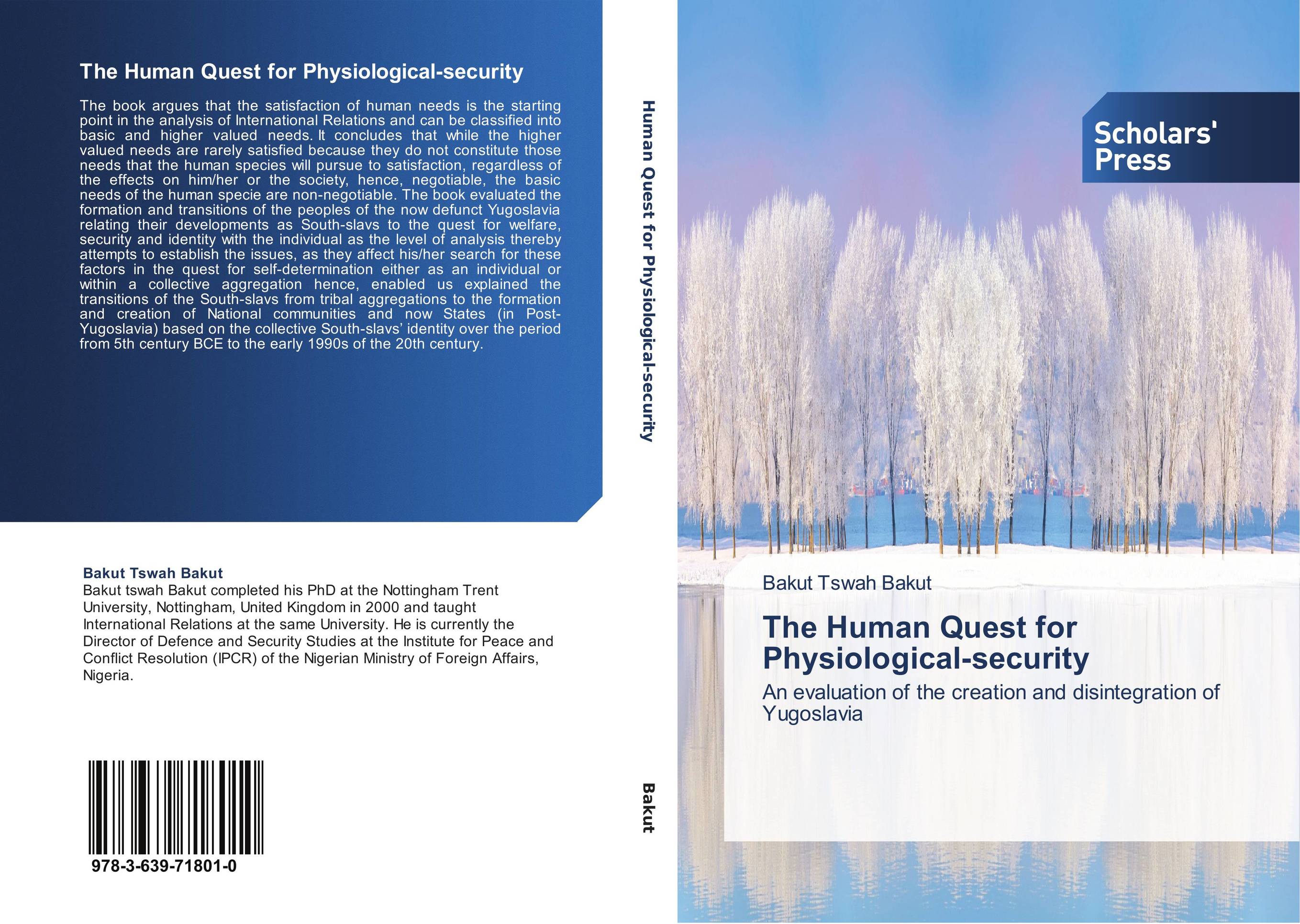| Поиск по каталогу |
|
(строгое соответствие)
|
- Профессиональная
- Научно-популярная
- Художественная
- Публицистика
- Детская
- Искусство
- Хобби, семья, дом
- Спорт
- Путеводители
- Блокноты, тетради, открытки
The Human Quest for Physiological-security. An evaluation of the creation and disintegration of Yugoslavia

В наличии
| Местонахождение: Алматы | Состояние экземпляра: новый |

Бумажная
версия
версия
Автор: Bakut Tswah Bakut
ISBN: 9783639718010
Год издания: 2014
Формат книги: 60×90/16 (145×215 мм)
Количество страниц: 224
Издательство: Scholars' Press
Цена: 35810 тг
Положить в корзину
| Способы доставки в город Алматы * комплектация (срок до отгрузки) не более 2 рабочих дней |
| Самовывоз из города Алматы (пункты самовывоза партнёра CDEK) |
| Курьерская доставка CDEK из города Москва |
| Доставка Почтой России из города Москва |
Аннотация: The book argues that the satisfaction of human needs is the starting point in the analysis of International Relations and can be classified into basic and higher valued needs. It concludes that while the higher valued needs are rarely satisfied because they do not constitute those needs that the human species will pursue to satisfaction, regardless of the effects on him/her or the society, hence, negotiable, the basic needs of the human specie are non-negotiable. The book evaluated the formation and transitions of the peoples of the now defunct Yugoslavia relating their developments as South-slavs to the quest for welfare, security and identity with the individual as the level of analysis thereby attempts to establish the issues, as they affect his/her search for these factors in the quest for self-determination either as an individual or within a collective aggregation hence, enabled us explained the transitions of the South-slavs from tribal aggregations to the formation and creation of National communities and now States (in Post-Yugoslavia) based on the collective South-slavs’ identity over the period from 5th century BCE to the early 1990s of the 20th century.
Ключевые слова: Nationalism, Identity, security, conflict, Citizenship, nationality, Nationhood, self-determination, statehood, South-slavs’ history



